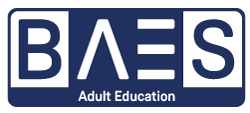Supporting Teaching & Learning in Schools - Level 2 Diploma
Course aims
To enable learners to develop knowledge and skills needed when supervising teaching and learning in the school environment. To support learners working in schools either as special needs assistants, teaching assistants or learning support assistants.
Course length
180 hours – usually 36 weekly sessions of 5 hours – and a minimum of 200 placement hours.
What could these courses lead to?
This course can lead to employment as a support assistant within aprimary/ secondaryschool establishment or college and higher education opportunities.
Job roles include:
Level 2 Teaching Assistant (TA)/ Learning Support Practitioner (LSP)
Level 2 Special Educational Needs Assistant
Learners can progress onto the Level 3 Diploma in Supporting Teaching and Learning. Progression advice can also be provided by a member of the CEIAG team.
Who is the course for?
The course is aimed at those who have made the decision that they wish to gain qualified employment in supporting learning in schools. In addition to your course, if you are not already working or volunteering in a school, you will be required to undertake work placement for a minimum of 200 hours. This amounts to approximately 2full days per week. Candidates are responsible for securing their own placements in a primary or secondary school establishment.
NB: This course requires a serious commitment and applicants should think carefully about their ability to undertake and achieve these objectives before enrolling.
Will I gain any qualifications?
You will gain a CACHE L2 certificate, whichis identified as a progression towards a Level 3 Diploma.
Do I need any knowledge, skills or qualifications?
You should already have knowledge of classroom practice. You should already hold literacy and numeracy at level 2, and be prepared to upgrade to GCSEs at grade A*-C or 9-4 by the time you qualify at level 3.
Course content
- Learn how children and young people develop.
- Understand why safeguarding and preventing harm is necessary especially in a school setting.
- The importance of effective communication with children and young people and in developing positive relationships with other adults, colleagues and parents/carers.
- Know how equality, diversity and inclusion are vital in work in schools.
- Understand about schools as organisations.
- Support children and young people’s health and safety.
- Plan, design and create classroom displays.
How will I learn?
You will learn by attending classes each week and taking part in group and paired activities and discussions, as well as observing or shadowing professionals in your workplace. You will be assessed through the building of a portfolio where you can evidence knowledge as well as being assessed in the workplace.
What materials or equipment will I need to provide?
The most important resource you will have is your willingness to learn. You should also have a supply of pens and paper.
Your commitments as a learner
To achieve success on the course you will need to:
- Attend college and placement every week. If you need to miss a class, please let us know in advance, if possible.
- You will need to ensure that you allow sufficient time for self-study and complete any homework set. You will be expected to complete all assessments and complete the full course. Complete the course.
Course completion
Completion is expected within the academic year. Learners whose completion is delayed may be subject to an additional assessment fee.
Disclosure and Barring Service (DBS)
DBS checks are carried out on everyone who works with, or trains to work with children, young people and vulnerable adults. BAES will carry out these checks before you start a work placement that is relevant to your classroom work course along with a right to work check.
For enrolment on classroom work courses and for your DBS check you must provide original approved documents, which give evidence of your identity and address.
To get a full DBS check you must have been a resident in this country for at least five years. If you have not been a resident for at least five years, you must also produce a Statement of Good Conduct (written in English) from your previous country BEFORE you can be enrolled onto a classroom work course.
If you have a criminal record, which may bar you from working with children and vulnerable adults, please discuss this with a member of staff before enrolling as all previous convictions and cautions will be disclosed and this could prevent you from completing your placement.
Interview and Initial Assessment
You will need to complete a written assessment and undertake a one to one discussion prior to enrolling onto a course. This is mandatory for all learners. Call our Information Line on 0121 303 4318 or email This email address is being protected from spambots. You need JavaScript enabled to view it. to make an appointment.



